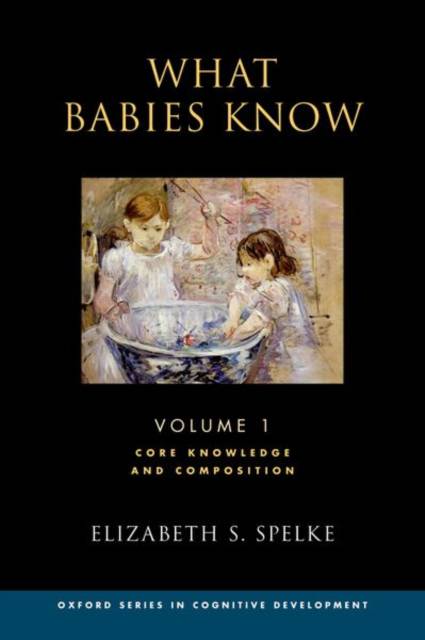
- Retrait gratuit dans votre magasin Club
- 7.000.000 titres dans notre catalogue
- Payer en toute sécurité
- Toujours un magasin près de chez vous
- Retrait gratuit dans votre magasin Club
- 7.000.000 titres dans notre catalogue
- Payer en toute sécurité
- Toujours un magasin près de chez vous
Description
What do infants know? How does the knowledge that they begin with prepare them for learning about the particular physical, cultural, and social world in which they live? Answers to this question shed light not only on infants but on children and adults in all cultures, because the core knowledge possessed by infants never goes away. Instead, it underlies the unspoken, common sense knowledge of people of all ages, in all societies. By studying babies, researchers gain insights into infants themselves, into older children's prodigious capacities for learning, and into some of the unconscious assumptions that guide our thoughts and actions as adults. In this major new work, Elizabeth Spelke shares these insights by distilling the findings from research in developmental, comparative, and cognitive psychology, with excursions into studies of animal cognition in psychology and in systems and cognitive neuroscience, and studies in the computational cognitive sciences. Weaving across these disciplines, she paints a picture of what young infants know, and what they quickly come to learn, about objects, places, numbers, geometry, and people's actions, social engagements, and mental states. A landmark publication in the developmental literature, the book will be essential for students and researchers across the behavioral, brain, and cognitive sciences.
Spécifications
Parties prenantes
- Auteur(s) :
- Editeur:
Contenu
- Nombre de pages :
- 560
- Langue:
- Anglais
- Collection :
Caractéristiques
- EAN:
- 9780190618247
- Date de parution :
- 17-08-22
- Format:
- Livre relié
- Format numérique:
- Genaaid
- Dimensions :
- 163 mm x 237 mm
- Poids :
- 1097 g







